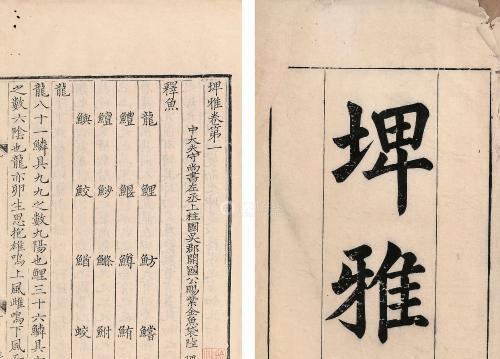Text/Kingdom Building
In 1143, that is, the thirteenth year of Emperor Gaozong Shaoxing of the Southern Song Dynasty. On the grounds that the collection of books was scarce and urgently needed to be replenished, the imperial palace borrowed and copied more than 13,000 volumes from Lu Zai, a collector. However, when Lu Zai's son Lu You entered Beijing in 1153 to take the imperial examination, Ben ranked first in the initial examination, but was jealous of the chancellor Qin Ju and ordered the examiner not to be admitted. It was not until After Emperor Xiaozong of Song succeeded to the throne that Lu Youjin was given the title of Jinshi. The reason for this is that it has a lot to do with Lu You's grandfather Lu You, why is this? It turned out that this involved a protracted political case, and Lu Biao, as a closed disciple of New Party leader Wang Anshi, was blacklisted by the party.
Wang Anshi

Lu Tuo was a native of Shanyin, Zhejiang (present-day Shaoxing, Zhejiang), born in 1042, the son of a petty official who was indifferent to fame and fortune.
In 1060, Lu Tuo heard that Wang Anshi, a scholar of the world, opened a lecture in Jiangning (present-day Nanjing, Jiangsu), and traveled thousands of miles to visit his teacher, and was accepted by Wang Anshi as a closed disciple. Later, Wang Anshi entered the capital as prime minister and presided over the change of law. Lu Tuo, who was a senior scholar in high school in 1070, originally wanted to follow the teacher to change the law, but he saw that the people around Wang Anshi were some people who were eager for success and quick profit, so he repeatedly advised Wang Anshi. At first, Wang Anshi still listened to it, but later, with the intervention of Lü Huiqing and others, Wang Anshi also believed that Lu Biao was not the material for political reform, and simply taught Lu Biao poetry and song, and no longer talked about changing the law with him. Lu Tuo gradually despised fame and fortune, and searched for all kinds of strange books in the world in order to study learning. After Wang Anshi lost power, the protégés and former officials were afraid to avoid it, so Lu Tuo and others still came and went as before, and were labeled by the old party as a reformer, and became victims of the political struggle between the old party and the new party.
Lu Biao's son Lu Zai also had political ambitions when he was young, and during the reign of Emperor Huizong of Song, he served as a judge of the huainan east road transfer, a deputy envoy of the jingxi road transfer, and a deputy envoy of the huainan road. Later, he was attacked by the politicians of the old party, and simply resigned his official position to concentrate on studying in the Lu family's library.
After the fall of the Northern Song Dynasty, Emperor Huizong of Song's son Zhao Zhao the Prince of Kang ascended the throne in Lin'an (present-day Hangzhou) and became the founding emperor of the Southern Song Dynasty, for Emperor Gaozong of Song. The Southern Song Dynasty regime was established in a hurry, and the rare treasures and various books in the Northern Song Imperial Palace had long been plundered by the Jin people, so the books in the Southern Song Imperial Palace were very rare, and even the daily education of the princes was difficult to maintain. Emperor Gaozong of Song had to put down his body and borrow and copy it from the Lu family, who claimed to be the first in the world to collect books. The emperor asked for help from himself, and whoever was a courtier was unreasonable. Lu Zai, the head of the Lu family, poured out his own collection of books and let them be copied in the palace, and various strange classics reached more than 13,000 volumes, making great contributions to the spread of traditional culture of the Chinese nation.
In 1153, Lu Zai's son Lu You entered Beijing to take the imperial examination, and was rated first by the examiner in the initial examination. However, it was very unlucky that among the students of the imperial examination that year was the grandson of Qin Ju, the prime minister of the dynasty. As a descendant of the "anti-party" (Emperor Gaozong of Song listed Wang Anshi as the first criminal in order to shirk the responsibility for the demise of the Northern Song Dynasty, and all those who followed Wang Anshi's change of law were blacklisted and could not be reused), it was already a natural favor to be able to take the imperial examination, and his meritorious name was still ranked before Qin Juniper's grandson. Qin Ju was furious and instructed the chief examiner to remove Lu You from his list and not to hire him. Therefore, in the final Song Dynasty, Lu You did not have a day to emerge. It was not until 1162, after Emperor Xiaozong of Song ascended the throne, that Lu You was rehabilitated and given him the birth of a jinshi.
More than ten generations of the Lu family have been loyal to the Great Song Dynasty. In the Battle of Yashan, the fall of the Southern Song Dynasty, Lu You's grandson Lu Yuanting heard of the defeat of the army and died in anger; great-grandson Lu Chuanyi committed suicide on hunger strike after the defeat of the Yashan army; The grandson Lu Tianqi fought bloodily with the Yuan soldiers in the Battle of Yashan, and after hearing that the emperor threw himself into the sea, he jumped into the sea and martyred the country.